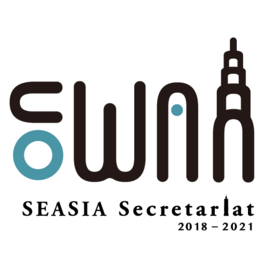組織簡介
Promoting Region-Based Southeast Asian Studies
Over the past few decades and in tandem with ever-deepening economic integration, increasing cross-border flows and movements of people, goods, ideas, and technologies, a number of leading organizations, communities, and individuals in the region now called East Asia (encompassing both Southeast and Northeast Asia) have been initiating, cementing, and institutionalizing both regional and global linkages and collaborations at the governmental and non-governmental levels, particularly in business, academia, and the arts.
Network-style academic cooperation has become de rigueur among area specialists as well. But over the years, academic cooperation in the East Asia region has mainly taken the form of bundles of bilateral (or at most trilateral) exchanges and collaboration, involving great expenditure of time, energy, and funds. There are many overlaps in the thematic focus of conferences, symposia and workshops sponsored individually or jointly by area studies institutions.
Some of the unintended consequences of this “noodle-bowl” phenomenon include intellectual fragmentation and segmentation even within one particular topic of “area studies” as can be experienced at some of the larger academic meetings that are frequently held. This fragmentation and segmentation can potentially impede the development of synergistic, inter- and multi-disciplinary research and ultimately hinder comparative approaches in terms of the goals and endeavors that are held and pursued in common by all of us scholars who are keen to promote area studies.
The study of Southeast Asia has been an integral part of Asian studies, and is represented in various international academic meetings such as the Association for Asian Studies (AAS), International Convention of Asia Scholars (ICAS), and European Association for South East Asian Studies (EuroSEAS). Parallel to these meetings, which have until very recently been held outside of the region, there have also existed region-based institutions that have provided excellent platforms for promoting Southeast Asian studies. The creation and rise of East Asian and Southeast Asian Studies departments and research institutes within the region and in its vicinity is testimony to this.
As ASEAN comes of age through the creation of a regional community in 2015, there has never been a more compelling need to establish a region-based consortium of Southeast Asian Studies institutions, one that can complement deepening economic, social and cultural integration and foster both regional and global efforts to network.
In North America and Europe, Southeast Asian studies constitutes only one sub-regional branch of “area studies” among many other areas, and is subject to the vicissitudes of funding and institutional imperatives specific to the countries in which they are based. But for scholars working on Southeast Asia who are based in East Asia, this “area” matters in geopolitical, economic, intellectual, institutional, social, cultural, and affective terms. The study of Southeast Asia is not peripheral and external to what scholars, public intellectuals, policy-makers, and activists are doing in the region.
This consortium enables scholars who live and research within or close to the region to come together for regular meetings without the added expense of traveling outside of the region. In line with the principle of open regionalism, however, the consortium welcomes close linkages with institutions based outside the region and encourages scholars from different regions of the world to participate in the common endeavor of enriching knowledge of Southeast Asia and sharing this knowledge with the world.
